A Hawke's Bay teenager jailed for life for murdering a rough sleeper is now one of the country's youngest killers. Disturbingly, he joins three other local teenagers sentenced for violent murders in the past 12 months. For Insight, Anneke Smith visited Hawke's Bay to find out what was happening with these young people.
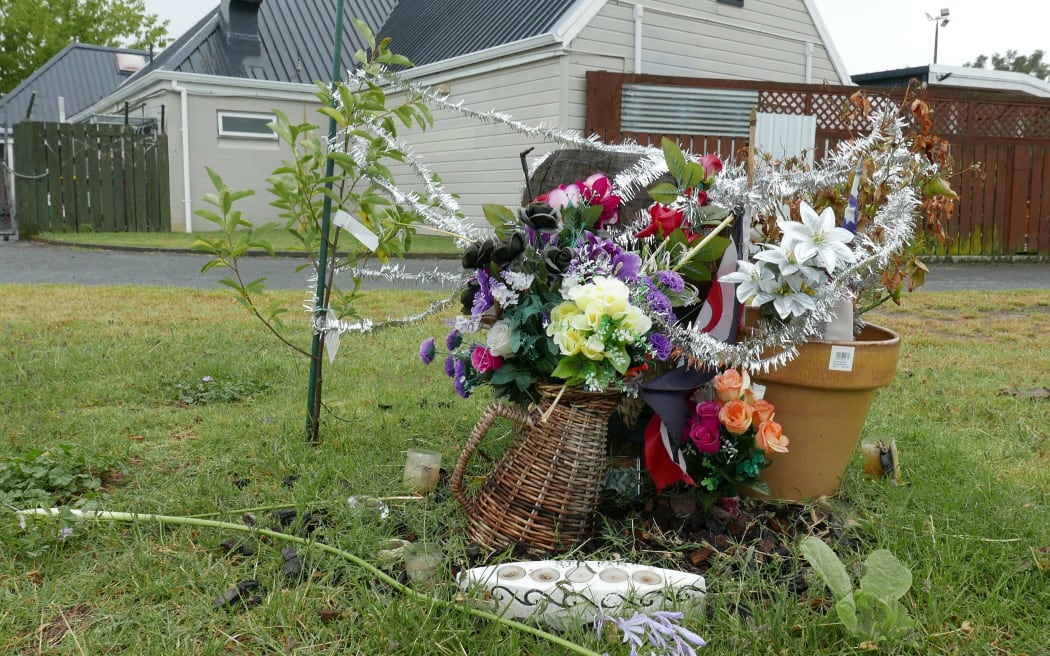
The Flaxmere community came together to create a memorial for Kelly Donner at the scene of his murder behind the local tavern. Photo: RNZ Insight / Anneke Smith
Dotted along a park bench on a warm Thursday afternoon, a group of young boys eye me as I approach. Their chatter falls quiet, their brows furrow inquisitively, when asked about their suburb. One boy thinks the area is dangerous; citing gangs and smashed windows. But in the same breath, he says the area is amazing and boasts that he's going to the river to swim in a few hours. It is the school holidays and their parents are either working or looking after young ones at home. The boys like where they live but say there is too much"'hustling" going on, even if it is just for a few dollars.
This is Flaxmere, one of the most deprived suburbs of Hastings. It has a flat landscape of weatherboard homes perched on small sections. The suburban sprawl is divided by leafy parks that house tidy council garden beds. In the haze of a sunny afternoon, the area is peaceful and quiet. But the community has been scarred by a series of murders carried out by local teenagers
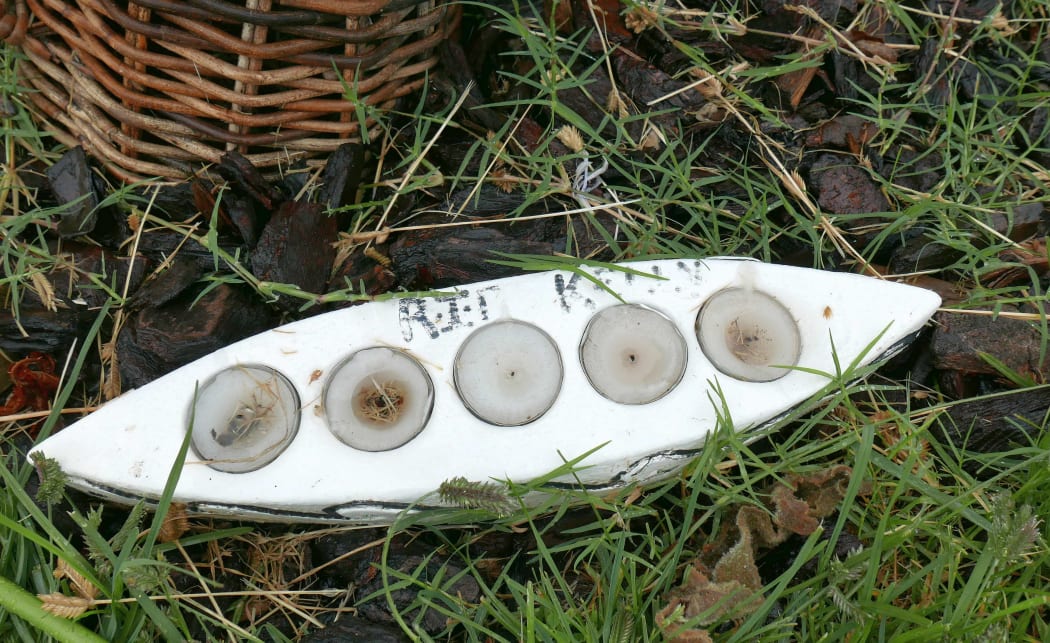
Candles with 'RIP Kelly' still lie at the memorial after being lit at the blessing ceremony. Photo: RNZ Insight / Anneke Smith
The murders
It's hard to say what is more shocking; that Kelly Donner was killed by a 14-year-old or that he was murdered over a disagreement about a flashlight. Teenage Haami Hanara stabbed him four times, severing a carotid artery in his neck. The 40-year-old bled to death in minutes behind a Flaxmere pub on a warm March evening last year. One murder might be explained away as an anomaly, but Mr Donner was one of three men murdered by teenagers in just over a year. Each case involved an innocent victim, senseless violence and youth connected to Flaxmere.
Mark Beale, 45, was beaten and left for dead in Haumoana on 5 February, 2017. He'd run into 19-year-old Johnnie Puna at the Tukituki river mouth while socialising at the popular fishing spot. The court heard how the pair shared Mr Beale's homebrew vodka before returning to his home for more. Scurrying down a grassy river bank, Mr Beale slipped and accidentally pulled Puna down with him. This accidental trip was said to be the catalyst for the fatal attack that followed. Apparently enraged, Puna killed the man with a series of punches and kicks to his head over a 40 - 60 minute period. Beale was found the next morning with unsurvivable brain injuries and life support was turned off the following day.
Ten months later, 17-year-olds Rosie Lewis and Shaun Karauria lured Sandeep Dhiman to his death. Lewis was the puppeteer but it was Karauria who held the knife; stabbing Dhiman nine times in the back, throat, heart and chest with such force the blade snapped off. It was a targeted attack as Lewis, who met Dhiman through Tinder, had previously told a friend; she and Karauria were going to take an Indian for a drive and kill him. Police would later describe it as one of the worse cases the region had ever seen.
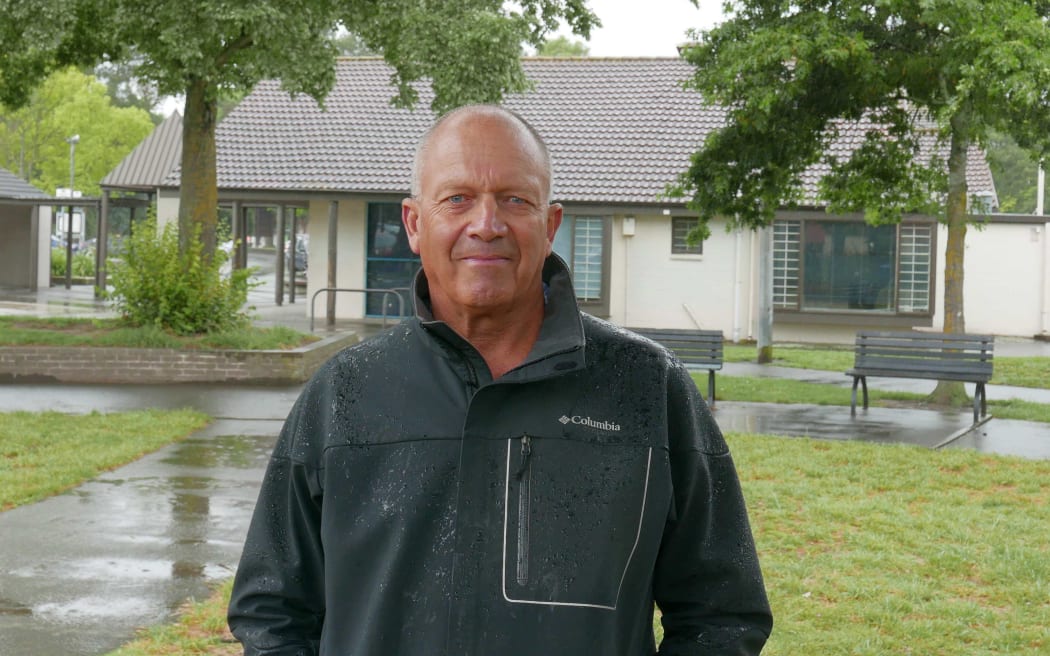
Ross Stewart is a retired police officer who spent a long time in youth services. Photo: RNZ Insight / Anneke Smith
The killings were undoubtedly tragedies for the victims' families, some of whom sat through horrific evidence at trial. But Ross Stewart, a retired police officer who worked in youth services for more than three decades, says they are tragic in more ways than one. "[Hanara] will always have the mark of 'you're a murderer' forever and I think that's extremely tragic for a boy of 14."
Stewart said it's easy to blame the now 15 -ear-old but there's a bigger picture. "He is a product of us, our society. It's really easy to say he's a product of his family, or he's a product of Flaxmere, but we've all got our part to play. I think if we have a look at Haami his life is a series of chapters and events that go way back beyond his birth and they've all culminated in what happened here."
Subscribe free to the RNZ Insight podcast; On iPhones: Apple Podcasts, RadioPublic or Spotify - On Android phones: RadioPublic
What's going wrong
Detective Inspector Mike Foster, who overseas all homicides in Hawke's Bay, says youth violence was on the rise. He pointed to aggravated robberies as an example of where young people are ramping up the violence. Last September three teenagers robbed a Hastings bottle store; one of them plunging a knife into the lone storekeeper six times. The victim had opened the till and backed away, pleading for the group not to hurt him. The money was there for the taking, but one of the teenagers still pulled the man to the ground, stabbing him in his neck, stomach and shoulder.
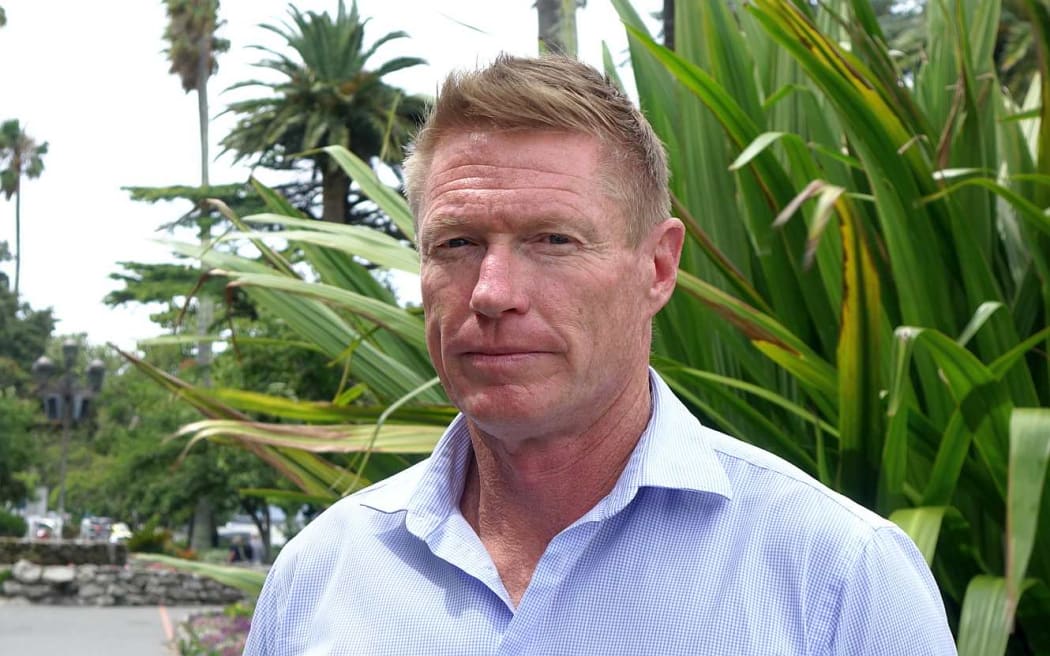
Detective Inspector Mike Foster, says the scale of violence in local youth offending is growing Photo: RNZ Insight / Anneke Smith
Foster says such senseless violence was shocking, but not surprising. "There are a lot of young people now growing up in situations in their home where there's a lot of family violence; there's no love in the household and they may be two or three generations of unemployed in the household. When you have that coupled with a lack of education I believe that there's a lot of young people at the moment that just don't have empathy."
Hawke's Bay has one of the highest rates of family violence in the country and the bulk of Oranga Tamariki's workload is in Flaxmere. The region's youth justice manager Sam Tiuka, who has worked in social services for more than 40 years, said it was the same families who are stuck in the system. "What you notice is the generations that are coming through ... it's the same family names popping up."
Entire families moved to Hastings during the urban drift to find employment but more than 1500 jobs were lost in 1986 when the Whakatu freezing works shut it's doors. Thousands more were lost about 10 years later when the Tomoana freezing works closed. This affected a disproportionately high percentage of Māori workers and Mr Tiuka said its effects were still being seen today.
"What you would have noticed back when the freezing works were operating and dad was earning a wage, things ran really smoothly. When there is employment some of those social issues that we now experience aren't so prevalent."
The Flaxmere community
The murders deeply affected the Flaxmere community, but they have also been the catalyst for change. It's a drizzly, overcast day when Moewaka Hinepare, who goes by the name Nanny Moewaka, showed me Kelly Donner's memorial. A small wicker basket holding an array of colourful flowers sits on a bed of bark pieces. Someone has plucked a flower from a nearby agapanthus plant and laid it in front of a juvenile tree.
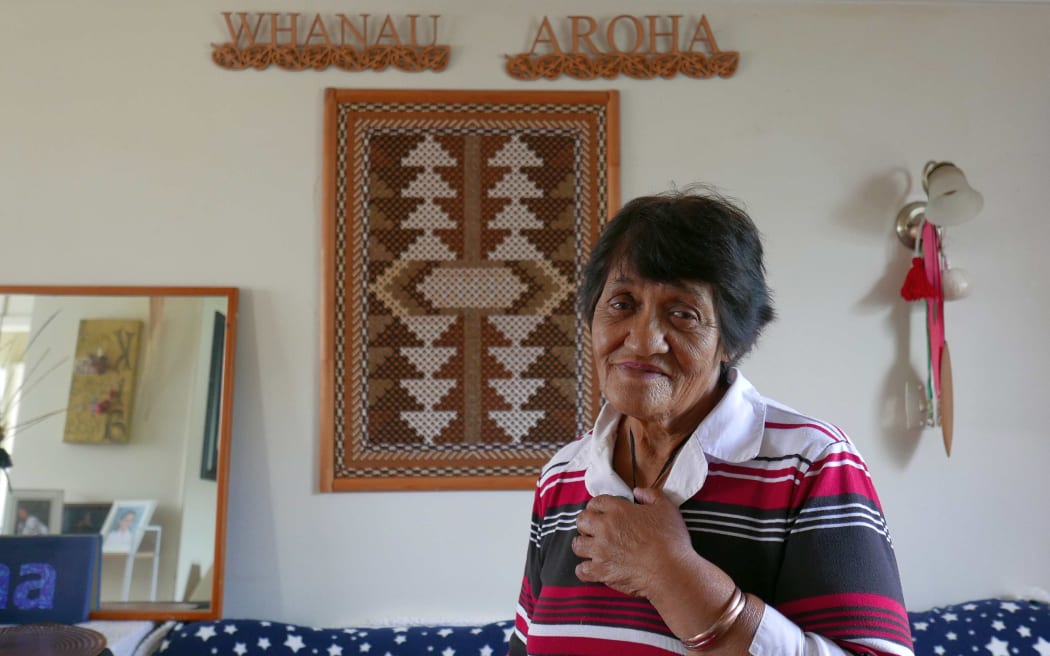
Moewaka Hinepare, known as 'Nanny Moewaka', in her home across the road from where Kelly Donner was murdered. Photo: RNZ Insight / Anneke Smith
For Nanny Moewaka, the memorial serves as a reminder of what happened here 11 months ago. She said not a day goes by without people, young and old, stopping at the scene to pay their respects.
"That's never happened here like that in Flaxmere, ever. At that age that was a shock to the whole community, it was really a terrible shock. Yes, they'd had different things that had happened but not to that extreme. That touched the people something unreal," she said.
More than 200 people from the Flaxmere community gathered to bless the site after Mr Donner died. Moewaka says candles laid in the grass continued to burn late into the night, defying heavy rain that washed Donner's blood into the earth. For her, the rain didn't happen by accident. She knew the blood needed to be washed away and embraced by Papatūānuku, the mother earth.
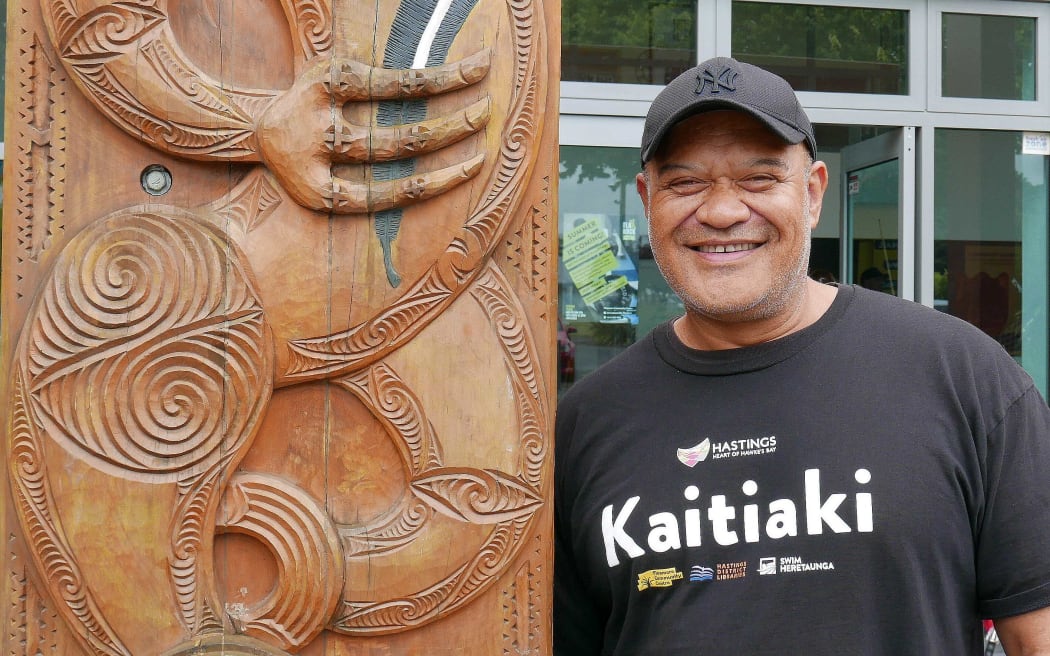
One of Flaxmere's kaitiaki Tihema Cooper loves working in the community and says it's a priviledge. Photo: RNZ Insight / Anneke Smith
Tihema Cooper, known as 'Ti', works around the corner in the Flaxmere Community Centre as a Kaitiaki - or guardian. His position was introduced after Donner's murder and has worked so well the Hastings District Council has rolled the initiative out across the entire district. Cooper recalls the great chiefs in his ancestry when reflecting that for him, Kaitiaki isn't a programme or a label but actually who the area's people are. While Mr Donner's murder felt so wrong, he said it's brought about positive change. "Since the death of brother Kelly, he actually brought the community a lot closer together. It had to be a tragedy to do that."


